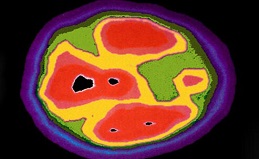
Sarah Adelaide Crawford
Southern Connecticut State University, USA
Title: Prenatal screening of maternal immune antigen biomarkers linked to microglial regulation of brain development may predict autism risk
Biography
Biography: Sarah Adelaide Crawford
Abstract
Recent discoveries of the connections between the maternal immune system [IS] and prenatal brain development suggest that routine prenatal screening for chronic disorders associated with IS dysfunction may be useful in identifying women at heightened risk for giving birth to a child with autism. Epidemiological studies have shown that the incidence of IS disorders, including systemic lupus erythematosus [SLE], rheumatoid arthritis [RA] and chronic obesity in combination with insulin-resistant diabetes, has increased significantly over the past several decades and that pregnant women with these conditions are at increased risk for having a child with autism. For this reason, physiological parameters associated with these prenatal conditions that can be detected before onset or at early stages of disease may serve as biomarkers for increased autism risk.

A physiological relationship between maternal IS dysfunction and impaired embryonic/fetal brain development may be defined by critical neurodevelopmental functions of brain microglia that are responsive to both neural and immunological stimuli. Impaired regulation of the developmentally versus immunologically defined functions of brain microglia may represent a primary cause of the neurological impairments characteristic of ASD. This critical cause/effect relationship provides the rationale for autism risk factor assessment using biomarkers associated with chronic immune conditions that impair the neurodevelopmental functions of microglia as a consequence of their inappropriate immunological activation. Moreover, the connection between abnormal IS function and impaired neural development suggests preventive approaches that can be used to decrease the overall risk for ASD in children born to mothers with these conditions.

